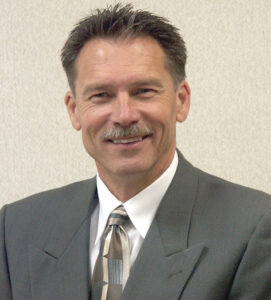
Hello my “Walking with Jesus” friends,
Do you like “warranties” or “guarantees” especially when you purchase new things or sign contracts? We are in the thick of wedding season in much of the world, and you may know sometimes there are ‘prenuptial agreements’ signed by the bride and groom BEFORE they are pronounced husband and wife! Those agreements are normally financial in detail, providing safeguards against husband or wife suing the other for large financial gain in the event they do not keep their covenant marriage vows and decide to divorce and walk away from each other. May I ask, do you sometimes want God to issue you a ‘warranty’ or ‘guarantee’ BEFORE you take a step of faith with God?
We’re nearing the end of our journey with James as we’re walking through the little letter he wrote to Jesus followers in the difficult times around the year 50ad. Jesus had ascended to heaven about 20 years before. The “Jesus movement” had spread out from Jerusalem to Samaria and was beginning to enter into Gentile country to the west, where Jews had fled the Jerusalem persecution. Paul and Barnabas had completed their first missionary journey, taking the Gospel of Jesus to places His name was unknown. Toward the end of James’ final chapter 5, he’s talking about the power of prayer, as we discussed yesterday.
Let’s take another look at James 5:14,15 “Is any one of you sick? You should call the elders of the church to pray over you and ask them to anoint you with oil in the name of our Lord Jesus. And the prayer offered in faith will make the sick person well; the Lord will raise them up…” Now we are facing an important issue here. Is this a guarantee from James? Is James saying that this applies to EVERY sick person, everywhere in the world, at all times? Now think about that? If that were true, no Christian would ever die, would they, as long as they could have an elder pray over them and anoint them with oil? At least they would not die of illness! So as those who received this letter from James heard it read for the first time, what were they supposed to conclude, and how should we understand it today?

First, let’s remember James was writing to Jewish Christ followers. (James 1:1) For them, in their long Jewish history, anointing oil was very important. Clear instructions had been given by God to Moses regarding how to make this pure ‘anointing oil’ (Exodus 30:22-25) and how to use it only for special purposes of consecration. (Exodus 30:26-32) As instructed, Moses ‘anointed’, with this special oil, each of the sacred pieces of the Tabernacle, the “Tent of Meeting”, as it was being assembled for the first time at Mount Sinai, as recorded in Exodus 40. Aaron and his sons, the first priests, were also anointed by Moses with this oil as they were consecrated and commissioned into their roles as the first spiritual leaders for the Jewish people. (Leviticus 8) You may recall the prophet Samuel used this oil to anoint Saul to be Israel’s first King (1 Samuel 10:1) and later Samuel anointed David to be Israel’s second King after Saul failed so miserably. (1 Samuel 16:13). There are few other Biblical examples of this oil being used to anoint either people or worship artifacts.
Next, let’s understand that James’ letter was dispersed to cities where clusters of Jewish Christians had gathered all over the Roman Empire. The one Temple of worship for the Jews was in Jerusalem. The golden lampstands in the Temple were still using a very fine oil, but I’m not sure we should presume the sacred oil of Exodus 30 was still being prepared, after all those centuries, for use in the Jerusalem Temple. Even if it was, it would likely not have been available in cities & towns around the Roman Empire.
We don’t know for sure how ‘anointing oil’ was being used in normal Jewish life in the first century, nor exactly what oil James was referring to here, but I hope you can see the link for these Jewish Christians with their Old Testament ancestors who used sacred oil as part of sacred worship ceremonies. I conclude the Jewish Christians would have understood James to be calling them to a sacred prayer experience of consecration of a sick person to God, with great faith believing God would heal that person of their sickness for HIS glory. You’ll see James urged them to invite the Elders, the spiritual leaders of their congregation, to be the ones who prayed over the sick person and anoint them with the oil. Perhaps this same practice is used in your city or your church?

So, here’s the big question we need to consider my friends: what does it mean if the sick person prayed over in faith and anointed with oil does NOT get well? That’s why I began today asking you about guarantees and warranties? We need to be careful we do not PRESUME upon the Sovereignty of God, expecting God to guarantee us good health, or a comfortable life, or even recovery from illness if we pray according to James’s instructions. When we pray we always pray in submission to God’s sovereign authority and His purposes. (James 4:7) Colossians 1:15-17 tell us God is creator of all and sustainer of all, and that includes us, each and every person! Healing is the miraculous work of God, to be accomplished when and how God chooses. It’s spiritually arrogant for any of us to assume we can control the healing power of God or demand that God heal a sick person at our insistence.
Yet James speaks quite clearly when he says “And the prayer offered in faith will make the sick person well; the Lord will raise him up. If he has sinned, he will be forgiven. Therefore confess your sins to each other and pray for each other so that you may be healed.” (James 5:15,16) Now we understand that God forgives the sin of a repentant person who has confessed their sin to God (1 John 1:9), and God forgives that sin on the basis of Jesus’ death payment for sin on the cross. James is NOT countering that truth by here suggesting that if we confess our sins to each other, we don’t need to confess our sin to God, nor that we have the power to forgive sin on God’s behalf. I realize that is what some religions teach as people confess their sins to priests or other religious persons, and then are told that God will forgive their sin BECAUSE they confessed it to a person. No my friends… God alone forgives sin committed against God as a repentant sinner confesses their sin to GOD. Let’s not be confused about that.

James is here challenging us to engage the process of confession one to another WHEN our sins have been against each other. I acknowledge my sin against you, and ask your forgiveness of me, and you extend forgiveness to me for that sin which I committed against you, which I have confessed to you. That process begins reconciliation and restoration of our relationship which may have been broken as a result of the sin I committed against you. So do you see my friends, sin often requires a double confession. First I confess my sin to God, against whom all sin is committed, and then secondly I confess that sin to the person my sin, that sin, affected.
Do you see James says “The prayer of a righteous man is powerful and effective.” (James 5:16) If James means a person is righteous because they have trusted Jesus Christ for their salvation and God has declared them ‘justified’, (Romans 5) then we understand a sinner here is saved by God’s grace, forgiven of their sin, and the Holy Spirit of God lives within them and is doing His holy work in them. But let’s be careful, James is NOT saying he or anyone else is sinless, righteous or holy by their own efforts or in their own nature. Holiness, righteousness is a work of God which HE imputes to us as part of the work of the Holy Spirit in our lives. Our justification does not transform us into a person of holy perfection, incapable of sinning!
James is saying a redeemed, Holy Spirit filled follower of Jesus Christ is privileged to have a welcomed entry into the throne room of God for engaging with God in prayer, (Hebrews 4:14-16; 10:19-23; Romans 8:26,27) and our prayer will be welcomed by God and God will weave our prayers into His miraculous, purposeful work in our world, for His glory! Sometimes that includes the healing of a sick person. Sometimes it involves other miraculous works of God, as Elijah experienced, which James refers to in vs. 17.
Now we’ve dug deeply into Scripture today my friends, and I hope you take from this discussion a great joy that if you are a follower of Jesus, prayer can be powerfully used of God in your life, to draw you in as a participant in some miraculous things God is doing in our world. But please be careful here friends. Pride cancels the power of prayer quickly! God will not share His glory with anyone! (Isaiah 42:8).
I think I’ll stop right here and invite you to ponder these great truths. And then take some time to pray, asking God to bring clarity into your mind. God bless you friends.
Bible images provided with attribution to www.LumoProject.com.
Have a comment or question about today’s chapter? I’m ready to hear from you, contact me here.

Pastor Doug Anderson 262.441.8785
“Let us run with perseverance the race marked out for us, with our eyes fixed on Jesus…” (Heb. 12:1,2)
Archived back issues of “Walking with Jesus” and other resources are available by clicking here to open our ‘home page’ (or go to HOME at upper right of this page).
Share with friends. Subscribe below for daily “Walking with Jesus”.
Facebook
Twitter
LinkedIn
Pinterest
Email
WhatsApp


